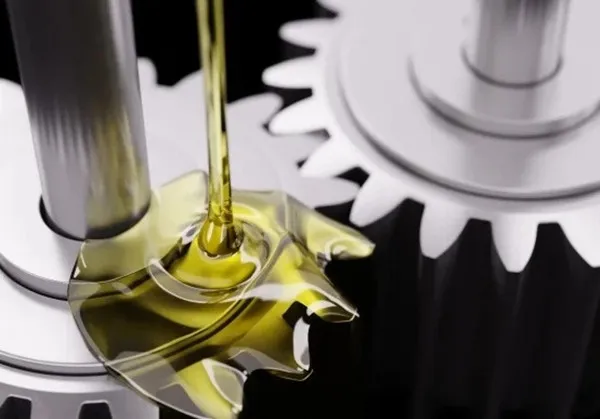- English
- Español
- Português
- русский
- Français
- 日本語
- Deutsch
- tiếng Việt
- Italiano
- Nederlands
- ภาษาไทย
- Polski
- 한국어
- Svenska
- magyar
- Malay
- বাংলা ভাষার
- Dansk
- Suomi
- हिन्दी
- Pilipino
- Türkçe
- Gaeilge
- العربية
- Indonesia
- Norsk
- تمل
- český
- ελληνικά
- український
- Javanese
- فارسی
- தமிழ்
- తెలుగు
- नेपाली
- Burmese
- български
- ລາວ
- Latine
- Қазақша
- Euskal
- Azərbaycan
- Slovenský jazyk
- Македонски
- Lietuvos
- Eesti Keel
- Română
- Slovenski
- मराठी
- Srpski језик
Do you know the performance of hydraulic oil?
2025-01-10
Hydraulic oil is a large category of industrial lubricants. It can be petroleum-based, water-based or composed of other organic substances. Hydraulic oil is used as an intermediate medium in hydraulic transmission systems. In addition to transmitting and converting energy, it also plays the role of lubrication, corrosion protection, cooling, flushing, etc. between the various components in the hydraulic system.
Performance requirements of hydraulic oil
1. Lubricity
Hydraulic systems have a large number of moving parts that need to be lubricated to prevent wear of the relative moving surfaces, especially for systems with higher pressures, which require much higher anti-wear properties for hydraulic oil. In hydraulic systems, hydraulic pumps and high-power hydraulic motors are the main moving parts, and they may often be in a state of boundary lubrication when starting and stopping. Therefore, a certain amount of anti-wear and anti-extreme pressure additives are often added to hydraulic oil to improve the anti-wear and anti-extreme pressure properties of the oil and meet the lubrication requirements.
2. Rust and corrosion resistance
During use, hydraulic oil will inevitably come into contact with moisture and air as well as acidic substances produced after oxidation. These substances will cause metals to rust and corrode, affecting the normal operation of the hydraulic system. Rust on the metal surface will affect the accuracy of hydraulic components, and rust particles are catalysts for oil oxidation and deterioration. Therefore, hydraulic oil is required to have good rust and corrosion resistance to ensure the normal operation of the hydraulic transmission system for a long time.
3. Air release
Hydraulic oil generally dissolves 8% to 9% of air in the oil at room temperature. Air release performance refers to the ability of hydraulic oil to release the air dispersed in it. Methyl silicone antifoaming agent is particularly effective in eliminating foam on the surface of oil products, but it inhibits the rise and release of small bubbles in the oil. Non-silicon antifoaming agents have little effect on the rise and release of small bubbles in the oil.
4. Filterability
Filterability refers to the ability of hydraulic oil to filter without clogging the filter. Experiments have shown that as long as there are tiny impurity particles, it will cause wear and failure of equipment. Anti-wear hydraulic oil, especially after being contaminated by a small amount of water, is difficult to filter. Therefore, filters are installed in the hydraulic system, and the hydraulic oil is required to have good filterability.
5. Low temperature performance
The low temperature performance of hydraulic oil includes three aspects: low temperature fluidity, low temperature starting performance and low temperature pumpability. The latter two properties are mainly related to the low temperature viscosity of the oil. Therefore, manufacturers of various hydraulic pumps specify the minimum cold starting viscosity of the hydraulic oil used for the hydraulic pumps shipped from the factory. Low temperature fluidity refers to the performance of oil products flowing under low temperature conditions. Low temperature starting performance refers to the ability of oil products to overcome starting resistance at low temperatures and quickly obtain starting. Low temperature pumpability refers to the ability of oil to be transported to the contact surfaces of various friction components at low temperatures. The low temperature performance of hydraulic oil is very important for mechanical hydraulic systems operating outdoors in cold and extremely cold areas in winter.
6. Cleanliness
In hydraulic systems, 75% to 80% of failures are caused by hydraulic oil contamination. The main contaminants of hydraulic oil are water, air, other oils, self-oxidation products, mechanical impurities, etc. In general, hydraulic oil contamination will cause adhesion, block filters, servo valves, and valve holes; increase the wear of pumps and moving parts; accelerate the aging and deterioration of oil; block the oil suction coarse filter, causing pump cavitation.
Conclusion
Hydraulic oil is not just a lubricant, it is the guarantee for the normal operation of the hydraulic system. Understanding the composition, function, classification, and importance of maintenance and replacement of hydraulic oil will help us better use and maintain the hydraulic system and improve the working efficiency and service life of the equipment.





